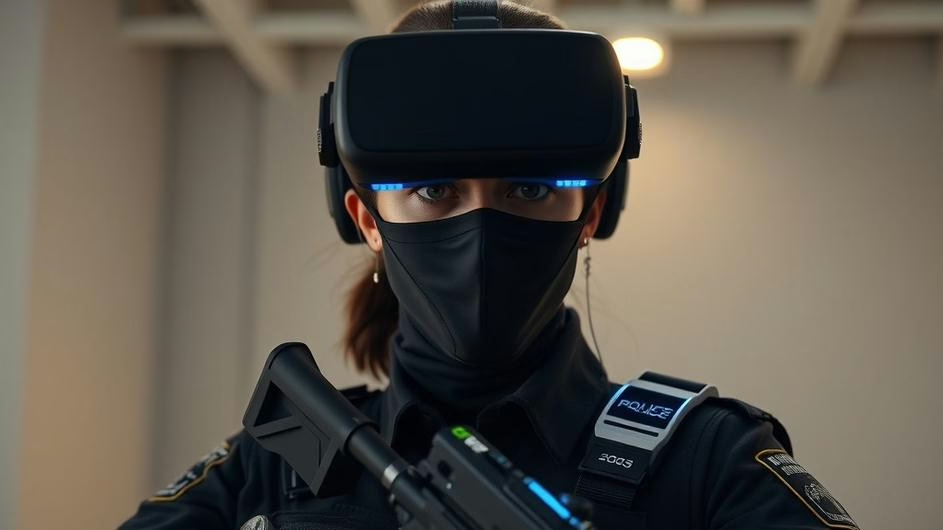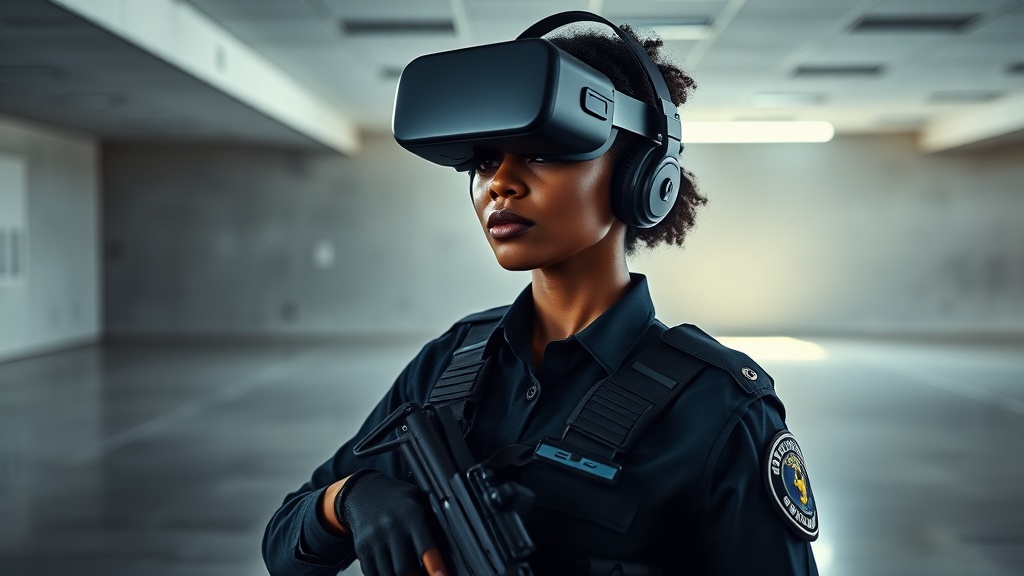
The Rapid Evolution of VR: Gaming Innovation, Enterprise Adoption, and the Road Ahead
Virtual reality isn’t just evolving anymore. It’s exploding. Late 2025 has become a defining moment for VR tech, showing us just how far beyond gaming this technology has stretched. What started as a niche entertainment platform is now reshaping entire industries, pushing entertainment boundaries, and forcing developers to completely rethink immersive computing.
The latest VR innovations offer a snapshot of technology that’s finally hitting its stride. We’re not talking about gimmicky demos anymore. This is serious tech with serious applications.
Gaming Gets Real: Survival Shooters and Netflix Collaborations
This fall’s VR gaming releases are pushing boundaries in ways that would’ve seemed impossible just two years ago. Take Incuvo’s latest project, “Tracked: Shoot to Survive”. The studio that brought us Bulletstorm VR and Green Hell VR is now targeting Quest 3 and Quest 3S with a single-player survival shooter that demands more than quick reflexes. We’re talking strategic thinking, precise aim, and resource management in environments that feel genuinely threatening.
But here’s what’s really interesting: the iterative development approach that’s becoming standard in VR. Patient 8 Games’ “Memoreum” exemplifies this perfectly. Sure, it’s rough around the edges, but this sci-fi horror shooter brings puzzle-solving and survival elements together in ways that create genuine replay value. Optional collectibles, unlockable weapons, evolving difficulty modes, even a New Game Plus system. The developers aren’t just launching and walking away. They’re using rapid patches and community feedback to evolve their creation in real-time.
What’s catching my attention even more is how location-based VR is finally finding its groove. “Stranger Things: Catalyst” at Sandbox VR venues represents the third Netflix collaboration, but this one’s different. Instead of passive, cinematic experiences, we’re getting action-focused gameplay that leverages the social aspect of shared physical spaces. These venue-based adventures are solving something home VR systems struggle with: that sense of presence and camaraderie that makes experiences truly memorable.
Cross-Platform Innovation Breaks Down Walls
Here’s where things get technically fascinating. “Spatial Rifts” launching for Apple Vision Pro with PlayStation VR2 controller support is exactly the kind of ecosystem-breaking innovation we need to see more of. This mixed-reality first-person shooter isn’t just another game. It’s a proof of concept for what happens when developers stop thinking in platform silos.
The hardware supporting this evolution tells its own story. Quest 3, the upcoming Quest 3S, Apple’s Vision Pro – these aren’t just incremental upgrades. Lower latency, smarter tracking, and increasingly accessible development tools are attracting both major studios and indie developers. The best VR headsets of 2025 are becoming platforms for genuine innovation rather than just tech demonstrations.
Frequent updates, cross-platform ambitions, and steady price drops are expanding VR’s reach beyond early adopters. We’re finally seeing the network effects that make platforms truly valuable.
Enterprise VR: Where the Real Money Is
While gaming grabs headlines, enterprise VR is quietly becoming a massive market. Law enforcement agencies across North America are using VR for high-stress training scenarios that would be impossible to replicate safely in the real world.
Axon’s VR training platform now serves over 1,500 departments. Think about that number for a second. We’re not talking about experimental programs anymore. This is mainstream adoption of VR technology for critical professional training. Officers can rehearse split-second decisions in controlled simulations that provide measurable feedback traditional training can’t match.
The Aurora Police Department has been using this platform for three years now. That’s not a pilot program. That’s institutional adoption. These systems integrate real-time analytics, scenario variation, and after-action reviews to create dynamic environments that adapt to each trainee’s progress.
This level of personalization and repeatability in professional preparation is exactly what AR and VR technologies excel at. As these platforms become more sophisticated, we’ll see similar applications in healthcare, manufacturing, and education. The potential market here dwarfs gaming.

What’s Next: The Convergence Play
Looking at this season’s advances, we’re clearly approaching a tipping point. Popular franchises like Stranger Things are betting big on VR. Technical leaps in mixed reality multiplayer are solving real problems. VR is becoming normalized in critical professional roles.
The improvements in user comfort, cross-platform support, and software reliability mean developers can focus on creativity instead of fighting technical limitations. That’s when platforms really take off.
The next chapter for VR centers on convergence. Not just merging physical and digital realities, but unifying platforms, controllers, and developer standards. XR’s global surge is creating the ecosystem effects that make technologies truly transformative.
Each new VR release moves us further from isolated novelty toward a collaborative fabric for storytelling and human experience. The technology is becoming infrastructure rather than product.
For developers and innovators, the message is clear: experiment boldly, keep feedback loops short, design for both entertainment and utility. For investors and tech watchers, VR is transitioning from speculative to strategic. Whether you’re building survival shooters, training law enforcement, or creating shared franchise experiences, VR’s next wave offers genuine access to markets that barely existed five years ago.
The transformation VR is bringing to art, education, and entertainment in 2025 represents just the beginning. We’re watching the emergence of a new computing platform, and the early adopters are already making serious money.
Sources
- “Tracked: Shoot To Survive Targets November Launch On Quest 3 & 3S.” UploadVR. October 21, 2025.
- “Memoreum Review: Ambitious But Imperfect Specimen.” UploadVR. October 21, 2025.
- “Police agencies turn to virtual reality to improve split-second decision-making.” Fox News. October 23, 2025.
- “Stranger Things: Catalyst Is Out Now At Sandbox VR.” UploadVR. October 20, 2025.
- “Spatial Rifts Is A Colocated Apple Vision Pro FPS With PS VR2 Controller Support.” UploadVR. October 21, 2025.





































































































































